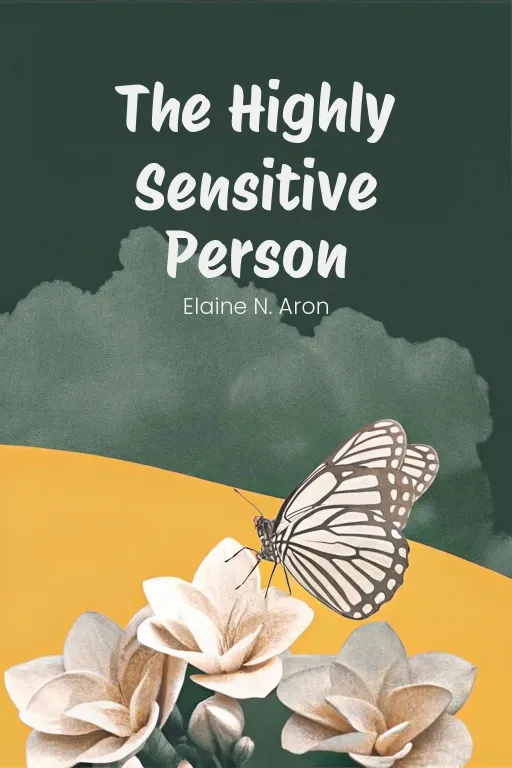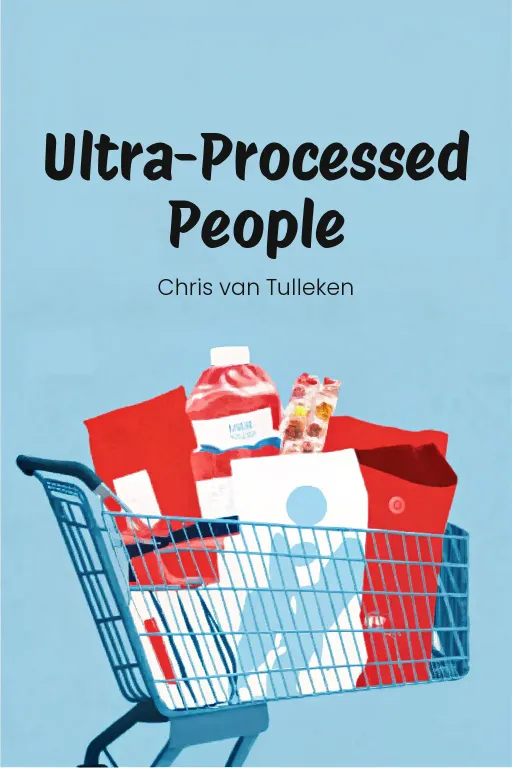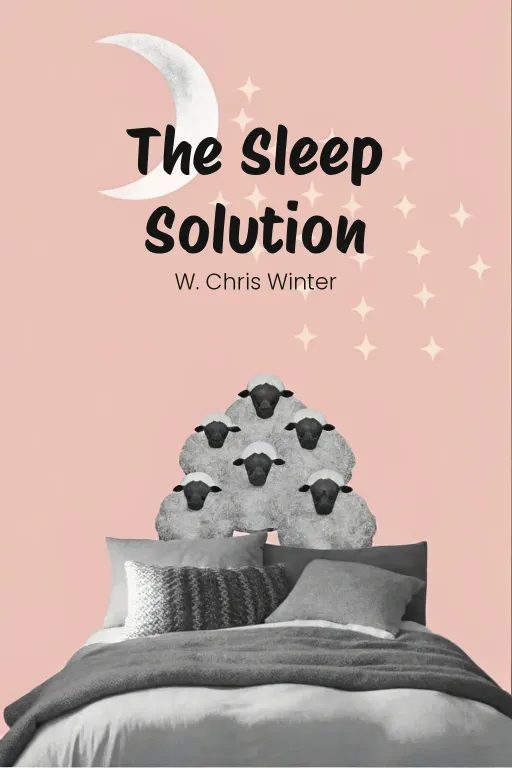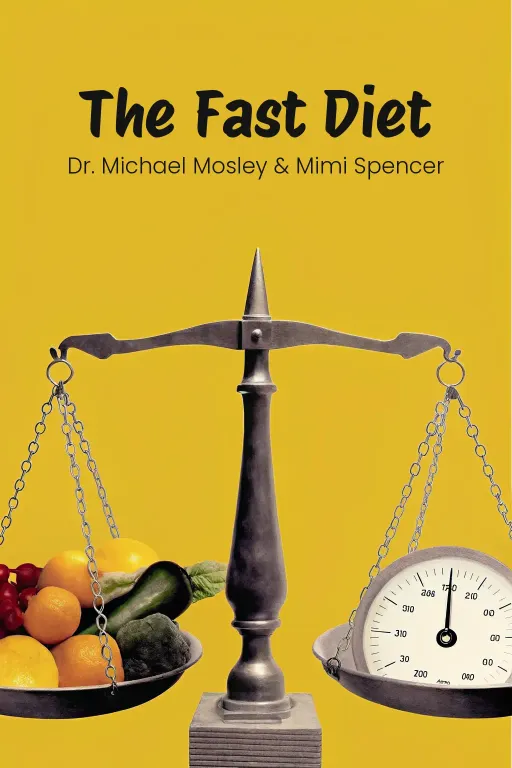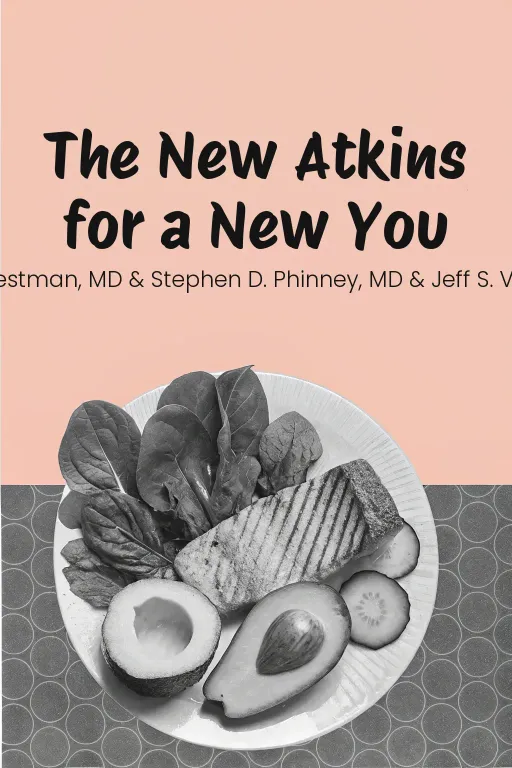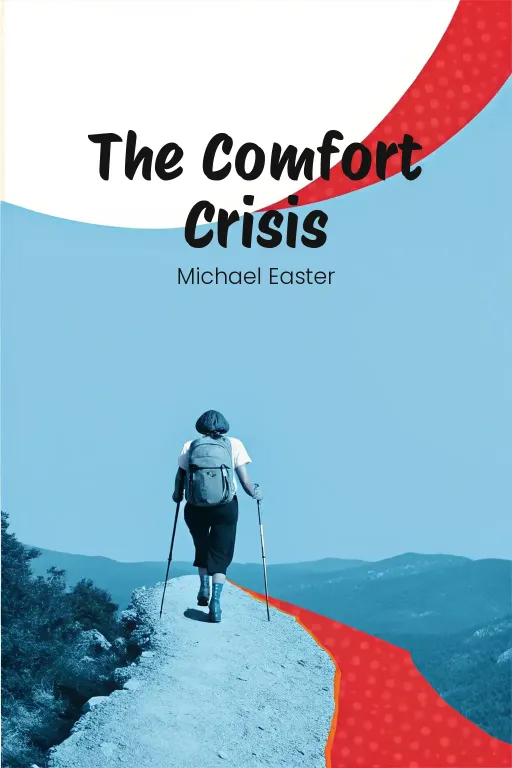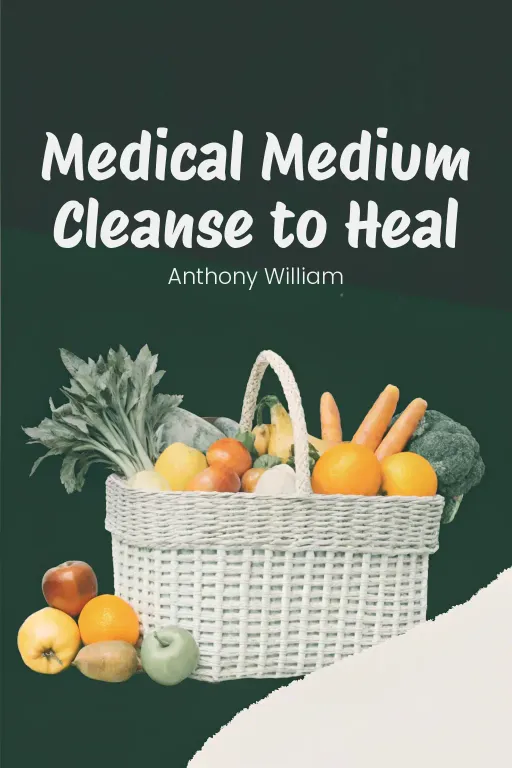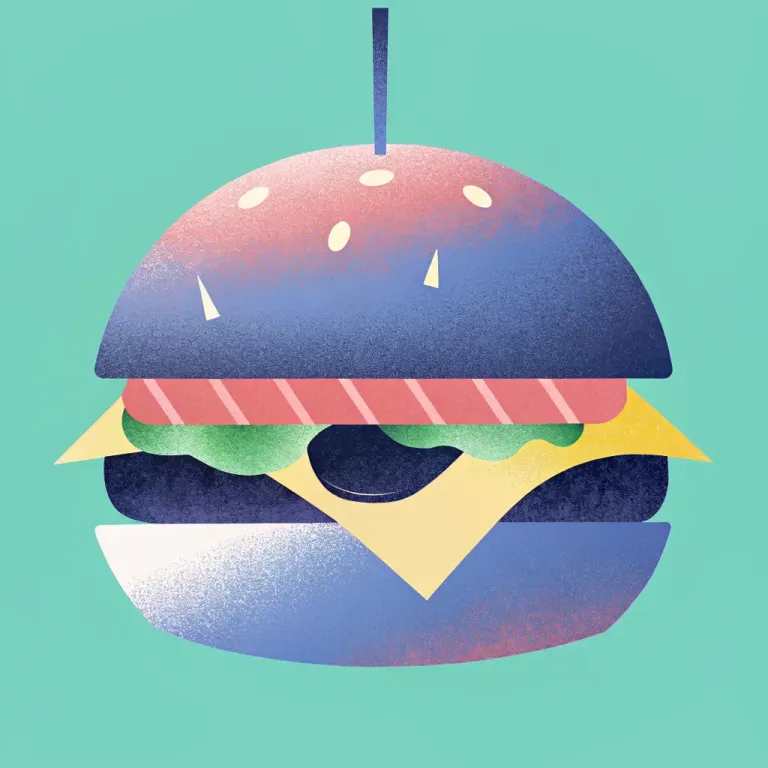
Food Lies: Unpacking the Ultra-Processed Trap
Podcast by Beta You with Alex and Michelle
The Science Behind Food That Isn't Food
Food Lies: Unpacking the Ultra-Processed Trap
Part 1
Alex: Hey everyone, welcome back! Let me kick things off with a quick question: when was the last time you grabbed something pre-packaged to eat? Maybe some chips, a frozen pizza, or even that “healthy” granola bar? Well, here's a bit of a wake-up call: it might not even qualify as real food. Michelle: Wait a minute, Alex. Are you saying our grocery stores are, like, filled with imposters? Food that's not really food? That sounds like a bad science fiction movie, doesn't it? Alex: Precisely! And that's exactly what Chris van Tulleken dives into in his book, Ultra-Processed People. It's not just about the stuff on our plates, but how these cleverly engineered “foods” have infiltrated our lives, are fueling global health crises, and, get this, even messing with our brains. Michelle: Okay, so this book isn’t just another fad diet push, is it? Alex: Not at all. Van Tulleken really digs into the science, the history, and he even shares his personal journey fighting the effects of ultra-processed foods—or UPFs. We're talking obesity, chronic diseases, mental health issues... all linked to these convenient, but highly addictive products. Michelle: Yikes. And let me guess, there’s a massive, money-making corporate machine behind all of this, right? Alex: Exactly! So today, we're going to unpack three big ideas: First, the science behind how UPFs basically wreak havoc on our bodies from the inside. Second, we’ll look at the industrial strategies they use to keep us hooked and those profits flowing. And finally, we'll explore solutions—policies, strategies, and practical changes we can all make to break free from this trap. Michelle: Sounds like we're peeling back a pretty toxic onion here, Alex. Let's hope it doesn't make us cry too much.
Definition and Impact of Ultra-Processed Foods (UPF)
Part 2
Alex: Okay, Michelle, let's dive right in. Let's talk about ultra-processed foods – what they are and how they mess with our health. It's really important to understand what “exactly” makes a food "ultra-processed." That's the key to seeing why they're everywhere and why they cause so much trouble. Michelle: Alright, Alex, break it down for me. What's the difference between, say, a frozen pizza from the grocery store and a fancy, wood-fired pizza from a restaurant? Aren't they both processed in some way? Alex: Exactly! And that's where the NOVA system comes in handy. It was created by a Brazilian nutritionist, Carlos Monteiro, and it categorizes foods based on how much they've been processed. At the top, you have your unprocessed or minimally processed foods – think fresh fruits, veggies, meats, grains. They're basically as close to their natural state as you can get. Then you have processed foods, like basic cheeses or canned veggies. These mix natural ingredients with a few added things, usually for preservation. But UPFs? Ultra-processed foods? They're on a whole other level. Michelle: And "whole other level" meaning...? Alex: I'm talking about industrially engineered stuff made with ingredients you'd never have in your kitchen. Emulsifiers, artificial flavors, colorings... all that jazz. Take Crisco, for example. Back in the early 1900s, Procter & Gamble took cottonseed oil – basically waste from the cotton industry – and turned it into a cooking fat. Doesn't exactly sound appetizing, does it? Michelle: Industrial waste for dinner. Fantastic. So, what makes these UPFs so appealing to, well, everyone? Alex: Convenience, number one. They last forever on the shelf, they're super easy to prepare, and they're designed to taste amazing. But here's the sneaky part – they strip out all the nutrients and then pump in additives to mimic the flavors, textures, even the look of real food. They're like food imposters, and most people don't even realize it. Michelle: So, it's like eating the food version of deepfake videos? Alex: Exactly! And it's not just about looking and tasting good, either. UPFs are specifically designed to mess with your body's natural signals. And that's where the damage to your health comes from. And trust me, Michelle, it ain't pretty. Michelle: Lay it on me. What happens when we eat this stuff? Alex: Well, let's start with Kevin Hall's study. He had people eating ultra-processed diets compared to minimally processed ones. Both groups ate meals that had the same amount of calories and macronutrients. So, you'd think the results would be similar, right? Michelle: Sure. Calories in, calories out, isn't that how it works? Alex: Nope! The UPF group ate an average of 500 extra calories a day! And it wasn't because they were hungrier – it was because these foods are engineered to override your body's "I'm full" signals. They mess with hormones like leptin, which tells you you're full, and ghrelin, which tells you to eat more. Michelle: Wait, so eating UPFs is like constantly hitting the snooze button on your hunger signals? Alex: That's a perfect way to put it. And it's not just the hormones either – UPFs are so easy to chew and digest, so there's almost no effort involved. A processed snack goes down in two minutes, but a good salad or lentil soup makes your body work. That slower process gives your brain time to catch up and say, "Okay, stop." With UPFs, that pause just... isn't there. Michelle: So, let me get this straight. These foods are specifically made to be fast, convenient, and pleasurable, but they're also sabotaging our ability to know when to stop. Doesn't that sound like addiction? Alex: Absolutely! Studies show that UPFs release dopamine in the brain's reward pathways – just like drugs like nicotine or cocaine do, but on a smaller scale. And just like those substances, the more you have, the more you crave. It's a vicious cycle. Michelle: Honestly, Alex, at this point, calling these things "food" feels wrong. We're eating something closer to chemically engineered entertainment. Alex: You're totally right. And the consequences can be devastating. Overeating UPFs is linked to obesity, type 2 diabetes, heart disease, and even mental health problems like depression. Michelle: Wait a minute – mental health? How does eating a packaged snack affect your mind? Alex: It's complicated, but one big part is chronic inflammation caused by a bad diet. UPFs also don't have the nutrients your brain needs, like omega-3s or fiber. And remember that dopamine cycle we talked about? That's directly tied to how your brain processes rewards and motivation. Michelle: Okay, Alex, let's get some real-world examples. Alex: Glad you asked. Let's take palm oil, for instance. It's a super common ingredient in UPFs. In its natural state, it's full of nutrients and beta-carotene. But the version used in UPFs is refined, bleached, and deodorized, which basically strips it of everything good. It turns into this bland, nutrient-free fat that's perfect for making things on a massive scale. Michelle: And when you say "mass production," I'm guessing palm oil is in, like, everything? Alex: Pretty much. From baked goods to instant noodles, it's everywhere. And because the UPFs made with it are so high in calories but low in nutrition, they just make the overeating problem worse without giving you actual sustenance. Michelle: Alex, this is starting to sound like our modern diets have been taken over by something… sinister. Alex: Exactly, Michelle! Traditional diets, where you eat mostly fresh, minimally processed foods, have been replaced by this lifestyle of convenience. And honestly, even the way UPFs feel in your mouth makes you eat more of them. Smooth textures, for example, mean you can shovel them down faster, so you’re ready for seconds or thirds before you even know it. Michelle: So, UPFs are not only changing what we eat, but also why we eat. Convenience takes over culture, and speed takes over satisfaction. Alex: Spot on! And understanding all of this is the first step to changing things. But let's save that for later. The takeaway for now is: UPFs are more than just junk food. They're messing with our bodies, distorting our connection to food, and creating a public health nightmare. Michelle: Got it. And I, for one, will probably never look at a bag of chips the same way again.
Corporate Influence and Societal Consequences
Part 3
Alex: So, after understanding what UPFs are and the impact they have on our bodies, it's time to dig into why they’re so prevalent . Let's discuss the corporate and societal systems that allow ultra-processed foods to dominate . It's really about moving from individual health to something much larger . Michelle: "Much larger" sounds, well, ominous . Are we hanging up our lab coats and heading into the corporate boardroom, then? Alex: Exactly! This builds on what we've been discussing by revealing the structural reasons behind the surge of UPFs . It's not just individual choices . It’s about corporations manipulating markets to exploit vulnerable populations, to influence policies, and fuel environmental damage—all while raking in huge profits . Michelle: Let me guess—there's a Nestlé-sized villain lurking in this story, right? Alex: How did you know? Nestlé is a classic case of how multinational corporations muscle their way into markets, often targeting communities that are already struggling economically . A particularly disturbing example is from Brazil . They introduced "floating supermarkets" to remote river communities . Michelle: Floating supermarkets, huh? That sounds almost idyllic—delivering essentials to people in far-flung areas . What's the catch? Alex: The "essentials" they're delivering are things like instant noodles, sugary snacks, and other UPFs . It’s all about appearing accessible, but really, they're replacing traditional diets of wholesome, local foods . There's this teacher, Paula Costa Ferreira, who describes how childhood obesity and type 2 diabetes were basically unheard of until these products flooded their diets . Michelle: So, instead of solving actual food supply problems, they’ve basically created a dependency on junk food . I mean, that's truly awful . Alex: Exactly . It's a form of nutritional colonization . They market these products as modern and convenient while actually destabilizing local farming and trapping communities in unhealthy cycles . And remember, UPFs are cheap to produce and ship, which makes them perfect for boosting profit margins by exploiting vulnerable markets . Michelle: It sounds a bit like tech startups, disrupting things without a plan to fix them . Except in this case, it’s your gut and your pantry that are being disrupted . Alex: Right, perfect metaphor . And while the health impact alone is alarming, the environmental cost can’t be ignored either . UPFs rely heavily on ingredients like palm oil, which has huge environmental consequences . Michelle: Palm oil… Oh right . Isn't that the one tied to deforestation and those heartbreaking images of orangutans losing their homes? Alex: Exactly . In Indonesia, for example, more than half the virgin rainforests have been destroyed since 1970 to make way for oil palm plantations . This kind of farming wipes out biodiversity, contributes a lot to global carbon emissions, and accelerates the climate crisis . During the 2015 Indonesian forest fires, the carbon dioxide emissions from deforestation were almost as high as the U.S.’s annual output . Michelle: Wait a second . So, the ingredient in my cookies and chips is not only bad for me but is also wrecking the planet on an enormous scale? Alex: Precisely . And while these corporations brag about their technological advancements in food, the environmental damage somehow never makes it into their glossy marketing campaigns . Packaging is another big issue . Coca-Cola, PepsiCo, and Nestlé together produce millions of tons of plastic waste every year, most of which ends up polluting already vulnerable areas in developing countries . Michelle: So they’re not just filling people’s bodies with junk, they’re also filling their environments with it . That's some pretty dark irony . And yeah, it all comes back to the relentless pursuit of profit . Alex: It all ties together . To me, one of the most insidious parts of this is the manipulation—or really, the lack—of regulation, which allows all this harm to continue . Michelle: Ah, so now we get into the world of loopholes and bureaucratic trickery . Please tell me we're talking about the infamous GRAS system . Alex: Bingo! GRAS—“Generally Recognized as Safe .” It’s a regulatory loophole in the U.S. that basically lets companies self-regulate when it comes to food additives . They don't need FDA approval for many of the substances they put in our food . Get this—98% of the new food chemicals introduced since 2000 skipped the formal FDA review process . Michelle: Wait, so the companies with a vested interest in keeping costs down and shelf life up are also the ones deciding if their additives are safe? Alex: That’s the system we’re stuck with . Experts like Tom Neltner and Maricel Maffini have pointed out this lack of transparency . Companies often don’t even share the studies they use to claim their additives are safe . It’s reminiscent of how Big Tobacco concealed the real dangers of cigarettes for decades . The public doesn’t fully realize the risks of these chemicals until it’s way too late . Michelle: So basically, we’re all guinea pigs in a giant food experiment, and no one’s sharing the data . You'd think we'd have learned from past public health disasters . Alex: Exactly . That’s the point Van Tulleken makes . Without stricter oversight and public accountability, corporations will keep cutting corners, leaving us and the environment to deal with the consequences . Michelle: And to think, this whole thing started with a Snickers bar and morphed into this massive crisis involving health, the environment, and regulation . It’s just mind-boggling how deliberately layered this all seems to be . Alex: It really is . The key takeaway here is that these problems are systemic . They’re fueled by corporate tactics, regulatory loopholes, and market manipulation—none of which can be solved by personal choices alone . Michelle: Agreed . So, the big question is: how do we even begin to unravel this enormous, sticky web of exploitation?
Solutions and Paradigm Shift
Part 4
Alex: So, recognizing that UPF issue is not just a personal problem, but a systemic one means we need solutions at every level, right? That's what brings us to today’s topic: solutions and a potential paradigm shift. We've talked a lot about how the food industry pushes these UPFs and all the consequences. Now, what can we actually do to turn things around, both as individuals and as a society? Michelle: Okay, Alex, let's get practical. When we talk solutions, are we talking baby steps? Like, individuals making different choices to avoid these UPFs? Or are we going for the big changes: policy and real systemic reform? Alex: Well, let's start with what we, ourselves, can do. Systemic change takes time, but there are things people can start implementing today. Cooking at home, for example, can be a game changer. Michelle: Okay, I see that. You make your own food, you know exactly what's going in it — no weird additives or impossible-to-pronounce ingredients. But, let’s be real, home cooking can feel impossible for busy people. How realistic is this for someone juggling work, kids, and everything else? Alex: You're right, it’s not easy. But the thing is to re-think our priorities. UPFs seem like a time-saver, but they cost us big time in the long run when it comes to our health, don't they? Even small swaps, like prepping some meals on the weekend, or grabbing fruit instead of a packaged snack, makes a huge difference. And Van Tulleken makes it clear: it's about progress, not perfection. Michelle: But, Alex, what about those so-called "food deserts," where healthy options are scarce and super expensive? How do you tell someone in that situation to just cook healthy meals? Seems a bit tone-deaf. Alex: Exactly. That's why personal choices and systemic changes have to go hand in hand. You can’t blame someone in a food desert for not eating more vegetables when all they have access to is chips and soda. That's where policy comes in. Take Chile for example. Michelle: Ah, yes, Chile’s front-of-package labeling laws, those black stop signs on unhealthy foods. You’ve mentioned them before. How effective was that, really? Alex: Super effective! Those warnings didn't just inform people; they changed what they bought. People bought fewer sugary drinks and snacks because the labels made the risks super clear. And here’s a fun fact: kids started policing their parents! Parents said their kids wouldn’t let them buy anything with those warning labels! Michelle: So, kids were guilt-tripping their parents into buying healthier stuff? That’s amazing. But did it actually affect the companies making these products? Alex: Definitely. Those labeling laws did more than just change what people bought. A lot of companies reformulated their products to avoid the warnings. They cut down on sugar, salt, and fat just to avoid that label. Michelle: Sounds like the pressure on the economy which forces change. What about the UK’s sugar tax? Alex: Oh, the sugar tax from 2018 is another great example of policy done right. It taxed sugary drinks higher, based on how much sugar they contained. And, just like in Chile, companies ended up reformulating their products to lower the sugar content. Plus, the tax money went straight to public health programs, like making school lunches better. Michelle: Killing two birds with one tax. So, fewer sugary drinks and healthier meals at school. Sounds like a win-win, right? But let’s be honest, Alex. Is that really enough to make a serious dent in a problem this big? Alex: Those policies are definitely steps in the right direction, but you're right, they're just pieces of the bigger picture. Next, we need to rethink the whole foundation of our food system, the foundation: agriculture. Michelle: Agriculture, huh? I guess this isn’t just about swapping out corn for kale. Alex: Not exactly. Here, we' re talking about agroecology. It's an approach to farming that looks at the whole picture, integrating biodiversity, the local environment, and making sure everything is sustainable. The agriculture of today feeds the UPF production system, growing massive amounts of corn, soy, and sugar to make this processed food. On the other hand, agroecology emphasizes diversity, like crop rotation, integrating livestock, and reducing chemical use. Michelle: Sounds good theoretically. But it’s not a quick fix, right? I mean, farmers rely on those big cash crops to survive. How do you convince a soy farmer in Brazil to diversify when the market is paying them to do just one thing? Alex: It’s a challenge, yes, but there are success stories. Governments and NGOs can provide subsidies and technical support to farmers as they switch to more sustainable methods. When small farmers stop depending on those single crops, they help the environment. Plus, they improve their own food situation, relying less on processed imports and focusing more on growing local, nutritious crops. Michelle: So, better farming, better policy, healthier home cooking. But, Alex, none of this really works unless we shift our culture, right? Alex: You’re spot on. We need to start thinking about UPFs as a health crisis, not as the norm. Look at how we started thinking about tobacco. Cigarettes went from being glamorous to being seen as dangerous and even socially unacceptable. Michelle: Well, with cigarettes it's different: People know they are addictive. Does the public understand that UPFs can be just as addictive? Alex: That's where public awareness campaigns come in. Look at the education around anti-tobacco efforts. The food industry needs a similar approach. Nutrition education in schools, clear messaging in the media, and programs like community gardens or cooking classes can make a big difference. Michelle: You keep mentioning education. It sounds nice, but is that really enough? The corporations behind these products have so much money and power. How do we compete with that? Alex: No doubt, it’s an uphill battle. But it wasn’t that long ago that the tobacco industry seemed untouchable. So what changed? Education paired with policy and advocacy, such as: stricter advertising, subsidies for healthy food, and grassroots activism. Michelle: Okay, Alex, let’s wrap this up with a tiny challenge. Imagine I’m standing right now in front of a vending machine. What’s your one-sentence advice to stop me from grabbing a candy bar? Alex: Don’t think of that candy bar as a snack. Think of it as a chemical experiment, engineered to keep you hooked. Still want it? Michelle: That’s… a little unsettling. But point taken. Sounds like we’ve given people a lot to think about and make sure not to chew anything from the vending machine.
Conclusion
Part 5
Alex: Okay, Michelle, let's bring this home. Today, we really dug into ultra-processed foods—what they “actually” are, how they mess with our health, and, you know, the bigger forces that keep them so prevalent. It's not just about bad snacking; from our hijacked hunger to manipulative marketing, we're looking at a real public health and environmental problem. Michelle: Right, and we didn't just dwell on the problem. We also talked about solutions—making conscious cooking choices, supporting policy changes, and thinking about bigger shifts in our food culture. It's more than individual swaps—it's rethinking the whole system. A systemic overhaul, you might say. Alex: Exactly! The main point is: we can make better choices and hold these companies accountable. So, cooking more, demanding clear labels, supporting sustainable farming…every bit helps. Michelle: And let's not forget the power of just being “aware”. If you get one thing from this conversation, let it be this: don't let convenience fool you. Really look at what you're eating, you know? And ask yourself, “who really benefits from this?” Alex: Spot on, Michelle. Changing the future of food starts with awareness, absolutely—but it doesn't stop there. We've got to push for systemic change that puts health, fairness, and sustainability first. Michelle: Definitely. So, healthier choices and a better food system—even if, sadly, it means saying goodbye to that cheeky candy bar from time to time. Alex: Thanks for listening, everyone! Until the next time, here's to living healthier, more informed lives! Michelle: Take care—and maybe just walk right past that vending machine, okay? Bye!
